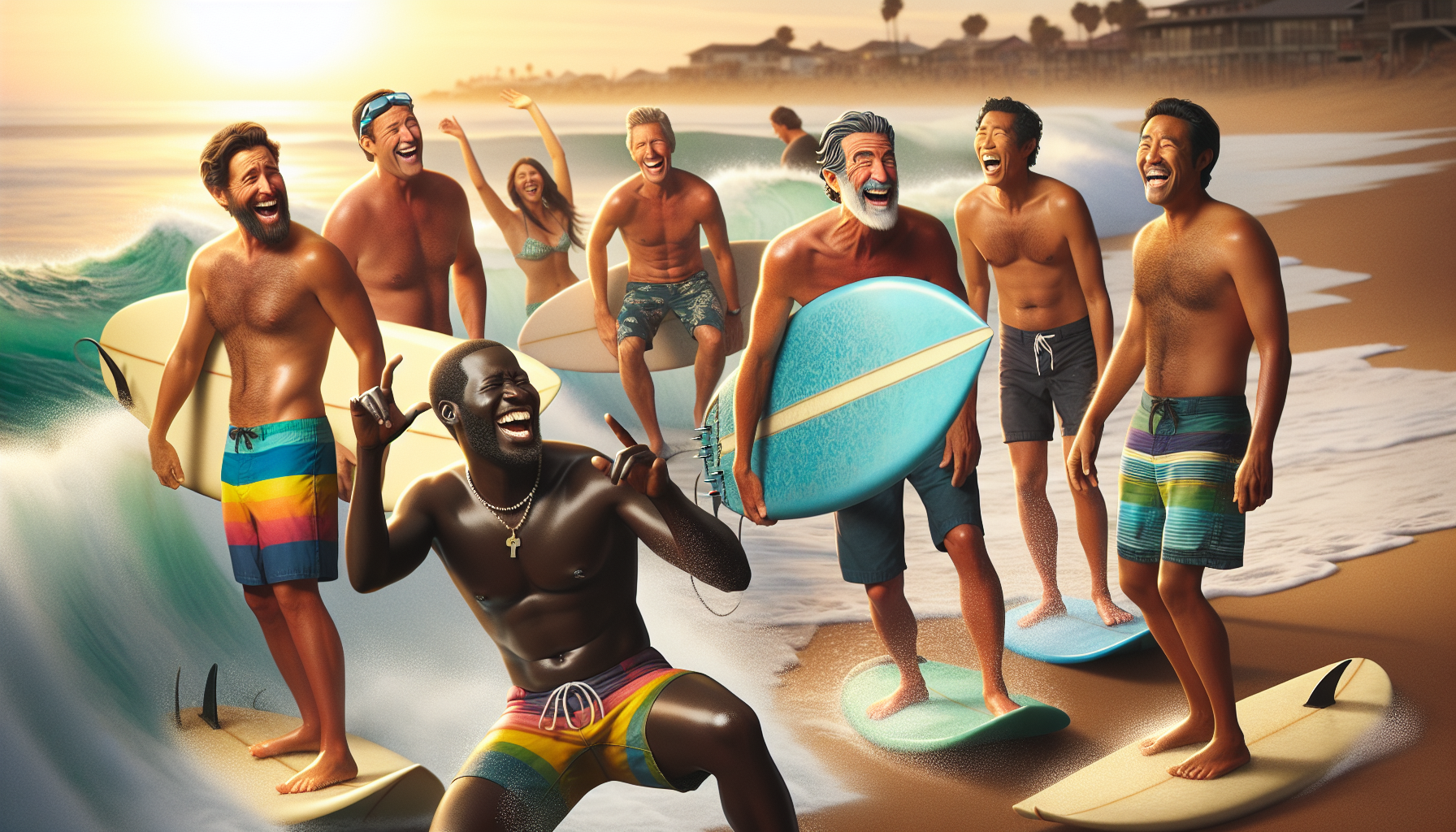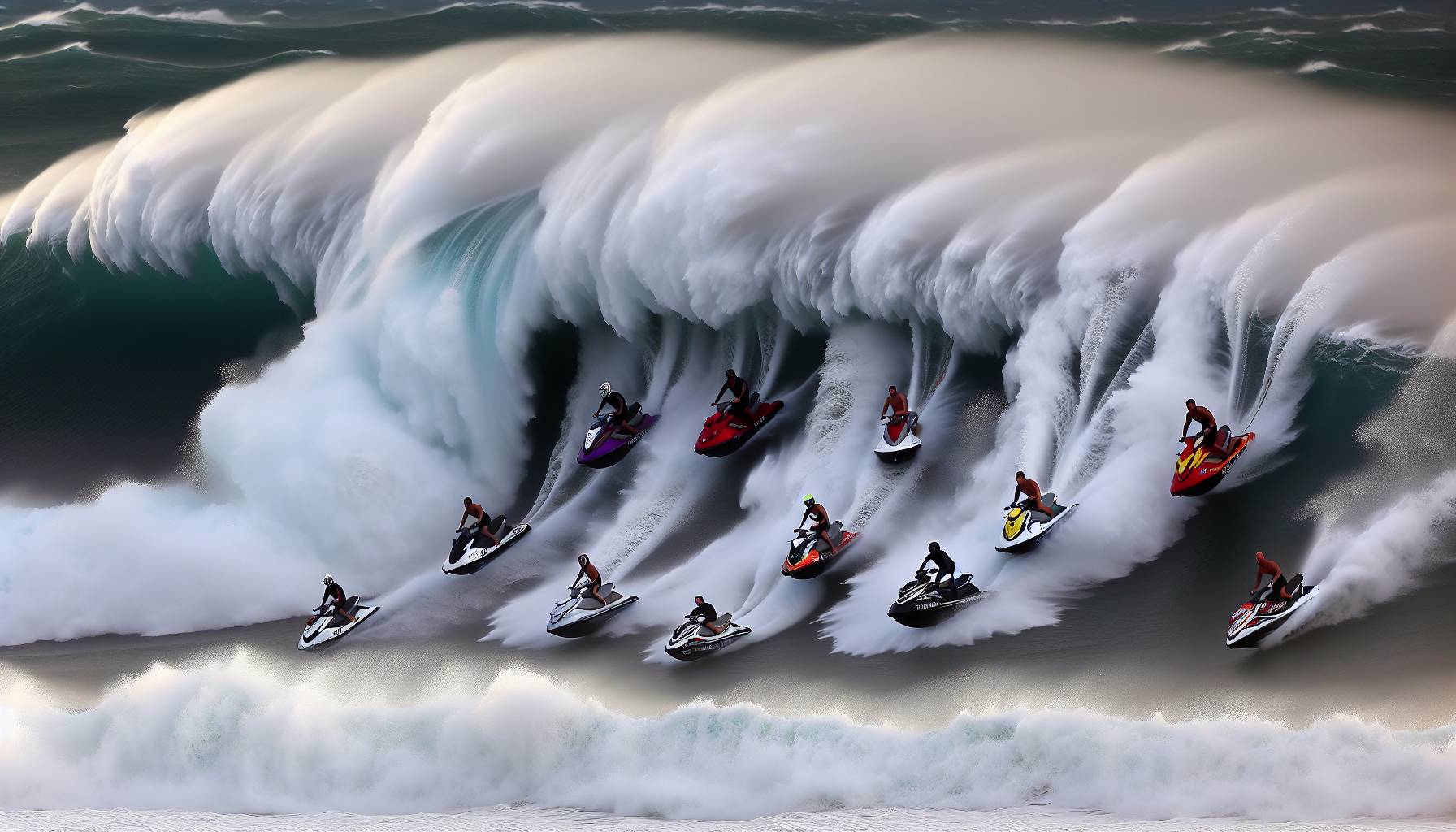
Managing expectations in the lineup
Every surfer remembers the first time they paddled out, full of excitement and nerves, only to realise that the ocean has its own way of humbling even the most eager beginners. For kids growing up with surf-obsessed parents, especially those who dream of their child becoming the next John John Florence, the pressure can be intense. But the reality is, not every grom is destined for the World Tour, and that’s okay.
In the lineup, managing expectations is crucial—not just for the young surfer, but for everyone sharing the waves. Pushing a kid too hard too soon can lead to frustration, burnout, and even a loss of love for the sport. Surfing isn’t just about talent; it’s about time in the water, understanding the ocean, and developing a natural rhythm with the waves. Some kids pick it up quickly, while others take years to find their flow.
For the overly optimistic surf dads cheering from the shore, it’s important to recognise that progression in surfing isn’t always linear. One day, a kid might be charging confidently, and the next, they’re struggling to get to their feet. That’s just part of the process. Instead of focusing on competition-level skills, parents should encourage their kids to enjoy the ride—literally and figuratively.
“The best surfer in the water is the one having the most fun.”
It’s a saying that gets thrown around a lot, but it holds true. If a young surfer is constantly being compared to the next big thing, they might start to feel like they’re never good enough. Instead of setting unrealistic goals, parents should celebrate the small wins—whether it’s a clean pop-up, a well-timed turn, or simply paddling out with confidence.
At the end of the day, the ocean doesn’t care about potential or expectations. It rewards patience, persistence, and respect. If a kid is meant to be great, they’ll get there in their own time. And if they’re not? Well, there’s still a lifetime of waves to enjoy without the pressure of being the next big name in surfing.
The fine line between encouragement and pressure
There’s a delicate balance between motivating a young surfer to improve and pushing them to the point where the joy of surfing starts to fade. Encouragement should be about fostering a love for the ocean, not creating an obligation to perform. When a kid feels like every surf session is a test rather than an adventure, the pressure can quickly outweigh the fun.
It’s easy to spot when a grom is surfing for themselves versus when they’re surfing to meet someone else’s expectations. The ones who are truly enjoying it will paddle out with excitement, take wipeouts in stride, and celebrate even the smallest progress. On the other hand, kids who feel pressured often hesitate, second-guess themselves, or show frustration when they don’t meet a certain standard. The difference is subtle but significant.
Parents who push too hard might not even realise they’re doing it. A well-meaning “You’ve got to commit to that turn!” or “You should be catching bigger waves by now!” can sound like encouragement, but to a young surfer, it can feel like they’re constantly falling short. Instead of focusing on what they should be doing better, it’s more productive to highlight what they’re already doing well. A simple “That was a sick wave!” or “You looked super confident out there!” can go a long way in building their confidence.
Another key factor is letting kids set their own pace. Some groms are naturally competitive and thrive on pushing themselves, while others just want to cruise and have fun. Both approaches are valid, and neither should be forced. If a kid wants to enter comps, great. If they’d rather just surf for the love of it, that’s just as valuable. The goal should always be to nurture a lifelong passion for surfing, not to manufacture the next pro.
At the end of the day, the ocean is unpredictable, and so is a child’s relationship with surfing. Some days they’ll be frothing to paddle out, and other days they might not feel like it at all. That’s normal. The best thing a parent can do is provide support without pressure, encouragement without expectation, and most importantly, remind their kid that surfing is meant to be fun.
Finding joy beyond competition
For many young surfers, the purest joy comes from simply being in the water—feeling the salt on their skin, the rush of gliding down a wave, and the camaraderie of sharing the lineup with mates. But when the focus shifts too much towards competition, rankings, and comparisons, that joy can quickly fade. Not every kid who loves surfing needs to be the next big name in the sport, and that’s perfectly fine.
Some of the best moments in surfing aren’t about landing the biggest airs or winning contests. They’re about the early morning paddles when the ocean is glassy and quiet, the spontaneous road trips chasing a swell, or the laughter that comes from an epic wipeout. These are the experiences that create a lifelong connection to the ocean—something far more valuable than any trophy or title.
Parents who truly want their kids to love surfing should encourage them to explore all aspects of it, not just the competitive side. Free surfing, longboarding, bodysurfing, or even just mucking around in the shore break can all be just as rewarding as training for a heat. Some of the most respected surfers in the world aren’t necessarily the ones with the most contest wins, but the ones who have an undeniable passion for the waves.
It’s also worth remembering that surfing is a lifelong pursuit. Some kids might not hit their stride until their late teens or even adulthood. Others might take breaks and come back to it later in life. The important thing is that they associate surfing with enjoyment, not obligation. If they’re having fun, they’ll keep paddling out—whether it’s for a heat, a free surf, or just to clear their head after a long day.
“At the end of the day, it’s not about being the best. It’s about loving every moment you spend in the water.”
So instead of measuring success by contest results or technical progression, why not measure it by smiles, stoke, and the number of waves ridden? If a kid walks up the beach grinning, talking about the waves they caught (or even the ones they missed), then they’re already winning in the ways that truly matter.
Managing expectations in the lineup
There’s nothing wrong with a bit of stoke, but some of these surf dads are carrying on like their kid’s the next John John Florence before the grom can even bottom turn properly. It’s one thing to be supportive, another to be completely blind to reality. The ocean doesn’t hand out participation trophies, and no amount of pep talks from the beach will change that.
Every lineup has its pecking order, and while it’s great to see young surfers getting amongst it, there’s a fine line between encouragement and setting them up for a rude awakening. If little Jimmy is paddling for every wave like he owns the joint, someone’s going to give him a proper lesson in surf etiquette—probably not with words. And that’s not even mentioning the poor bloke who’s just trying to enjoy his session without dodging a rogue soft-top.
It’s not about crushing dreams, it’s about keeping things real. Surfing’s tough. It humbles everyone, no matter how much dad reckons his kid’s got “natural talent.” The best thing these parents can do is let their groms figure it out for themselves—take the wipeouts, learn the lineup, and earn their place in the pack. Because if they’re actually good enough, the waves will do the talking.
Encouraging passion over pressure
There’s a big difference between raising a future pro and raising a kid who actually loves surfing. The best surfers in the world didn’t get there because their parents barked instructions from the beach—they got there because they couldn’t stay out of the water. If a grom’s only paddling out to impress dad, they’ll burn out faster than a cheap wax job in summer.
Pressure kills the fun. If every surf session turns into a coaching clinic, the kid’s going to start dreading the paddle out. Instead of drilling technique like a footy coach at training, let them muck around, take a few beatings, and figure things out on their own. Some of the best lessons in surfing come from trial and error—mostly error.
And let’s be honest, not every kid is going to be the next John John, and that’s fine. Maybe they’ll just be a solid weekend warrior who loves a few waves before brekkie. Maybe they’ll get more into fishing than surfing. Either way, the ocean’s meant to be enjoyed, not turned into a high-pressure talent factory. If they’re truly hooked, they’ll keep coming back for more—no pushy pep talks required.

